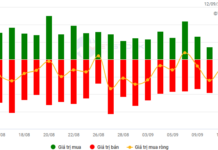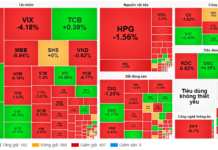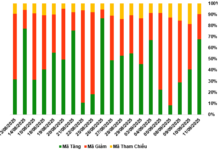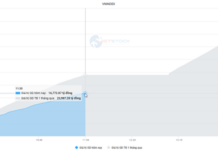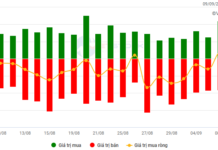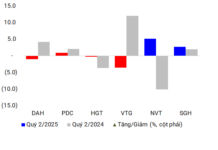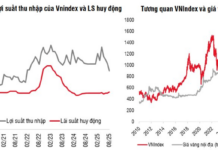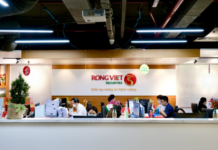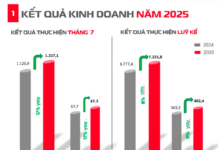Delaying home buying due to high prices
Mr. Duc Minh, a sales employee at a shampoo company in Hanoi, said that his family has saved up 1.5 billion VND and plans to borrow an additional 700-800 million VND to purchase a two-bedroom old apartment in Ha Dong District. The initial plan was to buy before Tet so that his family could have a new home after 10 years of renting. However, from last year until now, despite being taken to see many transferable apartments by brokers, Mr. Minh has not yet finalized any purchase due to the continuously increasing apartment prices.
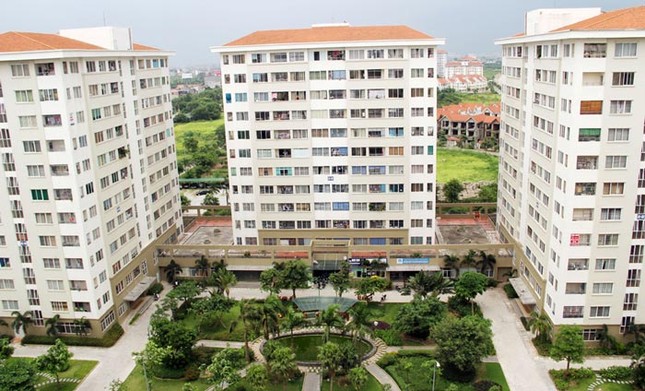
Despite the reduced interest rate, homebuyers are reluctant to take out loans because apartment prices keep rising.
Mr. Minh said that at a 35-story project on To Huu Street (Nam Tu Liem, Hanoi), the price for a 70 square meter apartment was about 2 billion VND at the beginning of last year, but now brokers are offering 2.4 billion VND, an increase of 20%. Brokers have warned that if he doesn’t make the decision soon, the price may rise even further as there are not many transferable units available.
After researching nearly a dozen old apartment projects in Ha Dong, Mr. Minh was surprised to find that many units had increased in price by around 400-500 million VND after just one year. Compared to the initial selling price by the developer, some towers have almost doubled in price in 5 years.
“The inexplicable increase in old apartment prices is why I don’t want to invest right at the beginning of the year. I plan to continue renting for a while before making a decision,” Mr. Minh said.
Ms. Bich Quyen, an employee at an office supply company in Long Bien District, said that with a budget of about 1.7 billion VND and an expected additional loan of roughly 400 million VND, last year she could have purchased a 70 square meter, two-bedroom apartment at the Hanhome Giang Bien apartment building (Long Bien, Hanoi).
However, this year, the price for the two-bedroom units has increased by 300-400 million VND to 2.4 – 2.5 billion VND. Many people advised her to buy as soon as possible as prices are expected to continue rising, but she decided to delay her plan to buy a home because, even though interest rates for loans are low, the amount exceeded her family’s expectations.
Mr. Nguyen Quoc Anh, Deputy General Director of the Batdongsan channel, said that the end of the fourth quarter and the beginning of the first quarter are usually the peak time for the real estate market as many people go house-hunting and make down payments to have a new living space before Tet. However, in the Hanoi market, many people have had to delay or change their plans to buy a new home due to high housing prices, especially in the apartment segment.
Mr. Quoc Anh said that in the past, even though interest rates for home loans at banks decreased by 1-3%, the number of people borrowing remained low, and personal loan debts even decreased. Some banks offered attractive home loan interest rates, but only for a short period, after which they would adjust the rates based on the market.
According to Mr. Quoc Anh, buyers are no longer attracted by preferential interest rates. Instead, they calculate based on the market’s floating interest rates and find it difficult to manage the repayment cash flow. “Renting is no longer a choice but a necessity for many people,” Mr. Quoc Anh said.
According to real estate experts, in the short term, the supply of new housing is still limited, and the limited supply with high demand will push apartment prices up.
For those who need to buy or change homes urgently, experts recommend carefully planning monthly principal payments to avoid a heavy financial burden. When buying an old apartment, attention should be given to legal issues, infrastructure, management, and building operation, to avoid rushing to make a purchase just before Tet.
For those who are not in a hurry to buy or change homes, it is safe to delay the purchase plan and continue renting. Buyers can reconsider important criteria such as location, area, facilities, and adjust their expectations to have more options. For those who can’t increase their budget, they can consider projects further away from the city center or those that have been completed longer to match their payment ability.
Interest rate picture
According to the latest statistics from the State Bank of Vietnam, the average mobilization interest rate of banks is currently only 3.9% per year. The average lending rate for new transactions is 6.7% per year.
The decrease in mobilization interest rates has led to a significant drop in lending rates to a historical low level. Despite the low lending rates, the demand for real estate loans has not fully returned as the market remains sluggish.
In line with the government’s guidance, commercial banks have actively promoted credit right from the beginning of the year through preferential credit packages, reduced interest rates for loans, and simplified loan procedures.
From practical surveying, most banks apply two interest rates: preferential interest rates for short-term loans from 3 to 12 months and interest rates after the preferential period. The difference in interest rates between the preferential and post-preferential periods at most banks ranges from 2 to 3.8%.
In addition, private banks have offered attractive home loan interest rates such as BVBank (5% per year); VIB (6.5% per year)…

